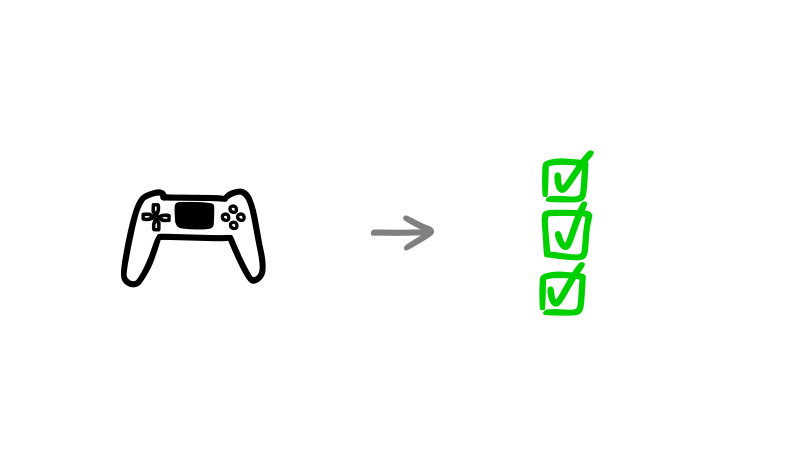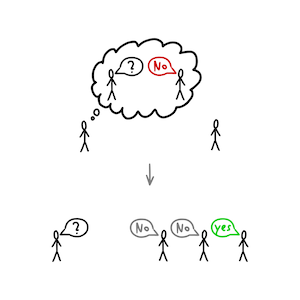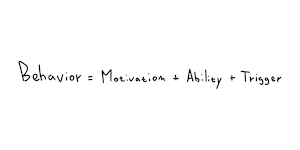The real benefits of gaming

Games aren’t just “bad”.
We don’t like one-sided arguments so we wouldn’t do the topic justice if we wouldn’t add the other side of the story.
If you have a healthy relationship with gaming, it can provide you benefits that you can transfer into your real life.
What healthy relationship with gaming means
- You play less than 20 hours per week → if you play more, it is usually cutting into the rest of your life too much.
- You don’t shirk any responsibilities → meaning you don’t hurry through your day so you can start gaming.
- Gaming isn’t your only way to spend your leisure → you have other hobbies so that means you don’t spend all your free time playing games, watching streams, and reading about games.
- You don’t consider everything else except games boring.
- You don’t start playing more in times of real-life stress.
If you feel like any of the following aren’t true, please refer to the first part of the series - should I stop gaming.
Otherwise, read on...
The real benefits of gaming
Let’s go through a list of abilities and benefits that gaming can give you.
1. Ability to focus
This is probably the most important benefit of them all.
In today’s day and age, people are so unable to focus that they have to scroll on their phones while watching movies. Doing one thing is not stimulating enough.
In comparison to this, games make people lose their sense of time quickly…
This leads to full engagement and people can focus for hours without any distractions.
This can help you relax, decrease your anxiety, trauma, and depression (if gaming isn’t causing this), change your state of mind, and improve your ability to focus in general.
People often think they’re unable to focus on work… but if you can focus and lose the sense of time in a game, it means you can do it in other endeavors of life. It just means you haven’t found anything interesting enough yet or you haven’t given it a chance to capture your curiosity.
2. Ability to solve problems
Gaming teaches people different problem-solving skills.
You learn to deal with the unknown. When you open a new game and you have no idea what to do… but you overcome the growing pains and deal with them. This increases your confidence in your ability to overcome obstacles in the future.
You learn the importance of perseverance. You have to try over and over to defeat a boss to get the treasure, gear, or title.
You practice the growth mindset. You begin as a total newbie but have to keep learning, improving, and dealing with challenges.
You learn to strategize. Especially true in strategy, survival, and puzzle games. You learn to spot bottlenecks and remove them. You learn how to deal with different obstacles, solve puzzles of various kinds, etc.
3. A really good way to unwind
Games are amazing at helping you unwind at the end of a long day. Once again, they capture your attention and you don’t have to overthink certain things which help you relax. (However, this can quickly become the only way of unwinding which we argue against.)
4. Aid against depression
The science isn’t clear about this because it can often be a chicken or an egg dilemma. There are studies like this that show gaming can decrease the chance of depression. Also, there are stories of people who used games to get out of a slump. However, people often use gaming as a form of escapism and can be the cause of depression (here, here, and here).
The standing in the current time is the following: Gaming might help you alleviate the symptoms of depression, but only if it doesn’t cause the depression in the first place.
5. Socialization
Maybe you feel excluded or isolated, you’re not a part of any real-life community. You can find people who play the same game and become a part of a team.
This can be the first step in overcoming social anxiety. Gaming can help you talk to people.
Now, all these benefits sound great, but how do you actually experience them?
See games as tools
You can see games as tools that help you accomplish something - they can often do it more effectively than other activities.
You can get invested in a story that is better than a movie.
You can play a really good game to unwind after a long day at work.
You can play a multiplayer game with friends, striving toward a common goal together as a team (especially meaningful during times of isolation).
There are many different game genres that you can use to accomplish different goals.
You can rank games based on these 4 factors:
- Intellectually engaging
- Stress-reducing
- Socializing
- Story-telling
What games are you playing? What function are they fulfilling?
If you find yourself playing a certain type of game too much, it might be a telling sign of what is missing in your life.
Ranking games based on the 4 factors
The rankings below are not definitive It depends on how you play each game, and also the ranking is highly subjective, but here are some of the most popular games and the categories we’d put the in:
MOBA games (DOTA 2, LoL)
(MOBA = Multiplayer online battle arena)
Intellectually engaging: The Chess of the 21st Century
Stress reducing: Really stressful
Socializing: Depends on who you play with - can be amazing with friends or it can make you hate humanity or your friends
Story telling: None
If you play games like these, it often means that you’re missing some kind of a challenge in your life.
MMORPGs
(Massively Multiplayer Online Role-Playing games)
Intellectually engaging: depends on the level and type of the game you play but a lot of the gameplay is grinding so definitely lower than MOBA games
Stress reducing: also depends on what you do in-game - it can be really great way to unwind, or can be really stressful during raids
Socializing: in the past, MMOs used to replace real-life friendships all the time, nowadays the games are made to be more of singleplayer but still can be a really nice way to connect with people
Storytelling: depends on the game, WoW is like 3/10 (in comparison to really good storytelling games)
If you play MMORPGs, it can often be a sign that you miss being part of a community and compensate for it in the game.
Story based FPS and RPGs single players
Intellectually engaging: most of the time, they’re not that difficult - if you’re not trying to min/max the game (like speedrunning)
Stress reducing: a really nice way to unwind
Socializing: a single player - none.
Story telling: depends on the title, but certain games are some of the best stories ever told..
There are dozens of genres so it’s impossible to list them all. Based on these examples, you can actually rank other games or genres.
Why am I playing this game?
To ensure you’re not using games as escapism, ask yourself: Why am I playing this game?
The motivation behind playing a particular game is often subconscious. If you start thinking about why you’re playing a particular game, you can start to understand yourself much better and this can lead you to make better choices generally.
What do you want to accomplish by playing this game?
Are you stressed and you just want to unwind? Do you want to socialize with a few friends?
Video games are becoming ever-present and we think people should know both about the benefits and the cons, and potential dangers. We think it’s much better to consider the merits of gaming for yourself and maybe in the future for your kids. Gaming isn’t going away and it’s much better to know how to use it for your own good instead of getting addicted or trying to block all the gaming.
It’s quite a complex topic with a lot of emotions tied up in it. There’s a lot of stigma, adults who don’t understand games (no, it doesn’t cause violence), and at the same time a lot of young people for whom all they know is gaming, and they have done it for so long that it is part of their identity. And therefore they protect their identity and can’t realize that gaming might be causing them issues.
Also, scientists don’t have a clear picture of the topic as well. A lot of them criticize the WHO’s decision to include gaming in their list of addictions arguing that there isn’t enough proof to be decided whether gaming addiction deserves its spot in the list of addictions or it is just another behavioral addiction. The reality is that at most 5-10% of gamers get addicted to gaming.
Personally, I’m better off gaming occasionally in the sense of not having it as a regular daily activity. It rewires my reward circuitry way too quickly so it makes other non-gaming activities less fun.
I have nothing against playing that is on an irregular schedule.
What about you? Be honest with yourself.
Is gaming bringing you benefits and fun? Or does it make you lazy and all the other endeavors in your life suffer because of gaming?



